Cafe Case Study: edda arabica, Beirut – Lebanon
This post is another in our Cafe Case Study series. We interview cafe owners to learn about the vision behind their space and then ask them a bit about the equipment they chose and why they made that decision.
Use these case studies as inspiration for your own cafe dreams or simply to get a behind-the-scenes look at some beautiful coffee spaces around the world.
Want to be featured in a future case study? Send us an email: silvia.t@modbar.com
Enjoy!
The Details:
edda arabica in Beirut, Lebanon. As told by the co-founder Rana Hassanieh.
Why did you open a cafe?
Before even entering the coffee world, I was studying fine arts and waiting tables in a local cafe in East London.
Through my love of art and all things sensory, I became fascinated with the world of specialty coffee. Once I solidified my skills as a barista and a trainer, I wanted to be able to share that passion for creating great coffee for the people in the community. In 2019, I founded Barista Hustle Arabic as a way to provide the Arab world with an online coffee educational platform. At that point, I met my partner Walid Ataya, a well-known restaurant owner and self-proclaimed food snob, and we decided to join forces to bring the highest quality coffee to the people of Beirut.
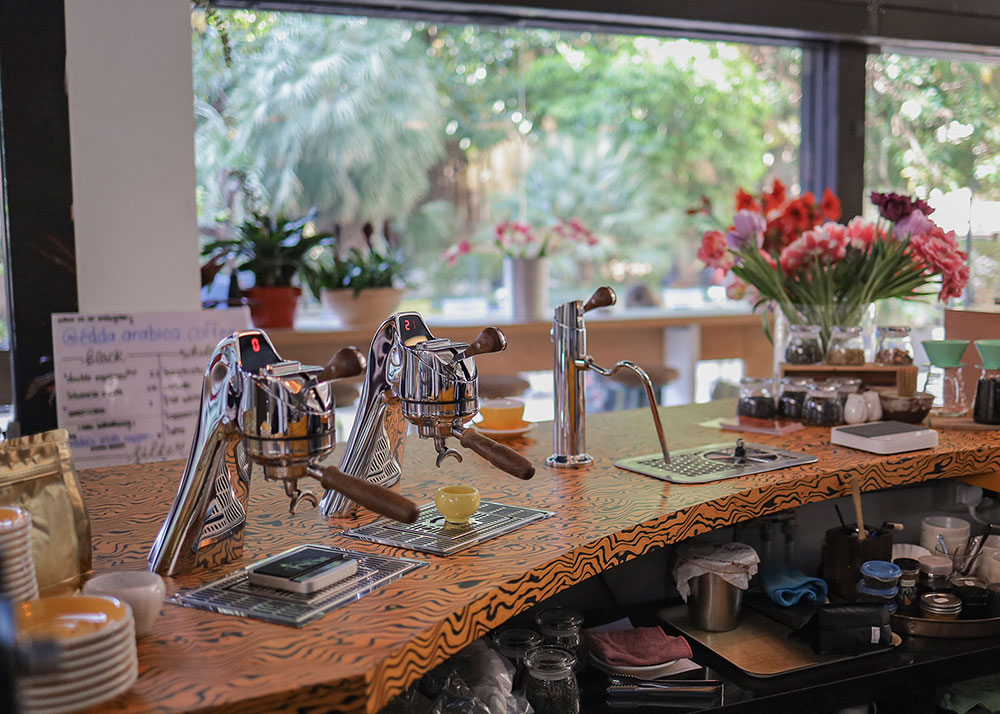
How would you describe the brand of your cafe?
The coffee culture is all-encompassing. The name edda derives from Nordic poetry and mythology – Poetic Edda. The stories are both entertaining and provide an immense amount of knowledge and wisdom. The Arabic version of our cafe’s name “the horse, the night and the coffee know me” is also based on the poetry of Al Mutanabbi “the horse, the night and the desert know me” replacing the desert for coffee. Our cafe is a place for intellectuals, artists, musicians, and people who view themselves as connoisseurs – who enjoy coffee and food that is passionately prepared.
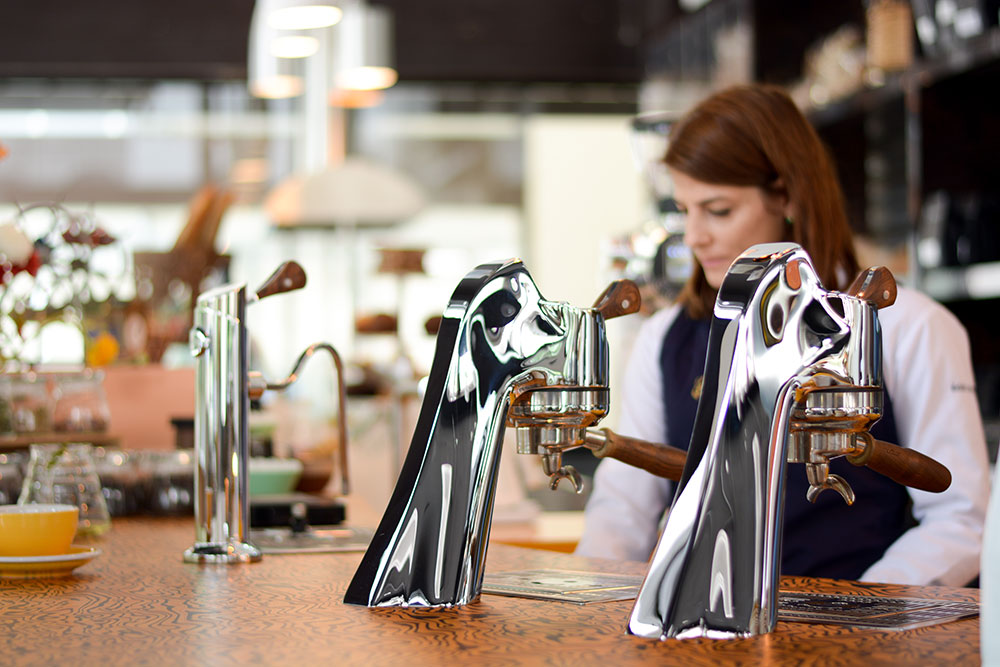
Describe your location and demographics of the area? Why did you choose this area?
We are in the heart of Beirut, a few steps away from the American University of Beirut Medical Center within the historical Gefinor Center. This part of Beirut has always been the primary hub for students, teachers, and knowledge seekers throughout Lebanon’s history. The hustle and bustle of this location are what make it a perfect spot for this type of cafe to exist.
Our indoor and outdoor space is filled with anyone from artists to medical students, to bankers and this eclectic mix of customers is what makes this location so special.
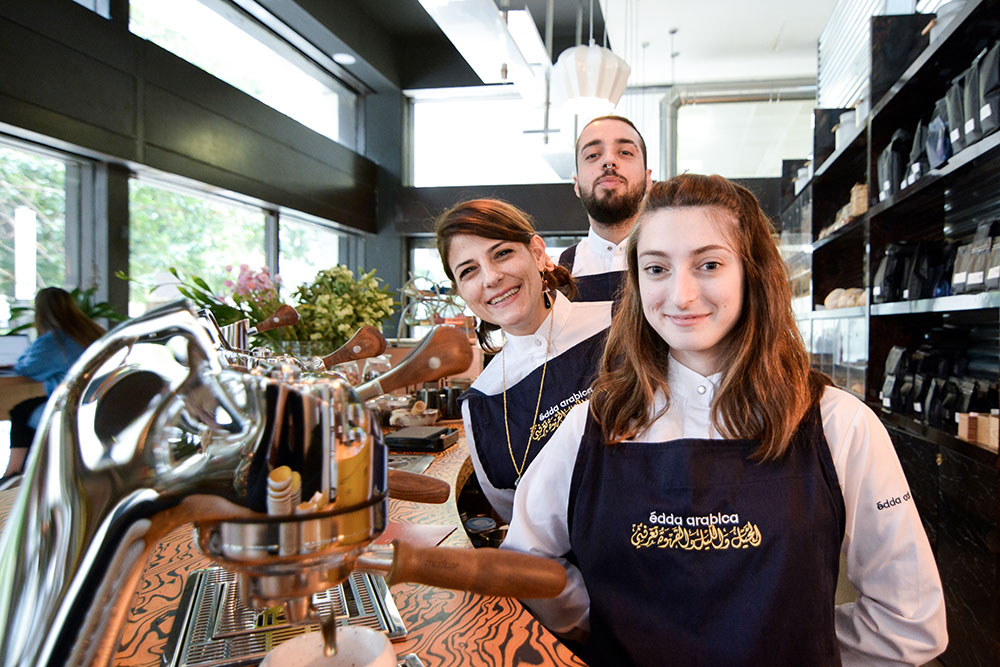
What equipment do you use to make coffee and why did you choose this equipment?
I chose Modbar for several reasons: first, I really wanted to have an interactive space between the barista and the customer. The bar itself serves as a space to share ideas and to educate the customer about the coffee process because the barista is approachable and within sight, rather than behind a machine. Finally…because it’s just beautiful!
We also have Mahlkoenig E65S GbW grinder and a Tanzania grinder for our Lebanese ibrik. We also use a Mazzer ZM for our brew bar.
Describe your bar or customer flow and how did the equipment influence the flow or vice versa.
From our outdoor space you have a choice of multiple points of entry into the cafe. When a customer enters, they are immediately drawn to the delicious pastries, to the beautiful coffee bar and to the flower-shop corner. The beauty of the Modbar is that it allows for an immersive experience between the barista, the customer, and the process. Customers can have a full-on sensory experience from visual, aromatic, and gastronomic temptations from all angles.
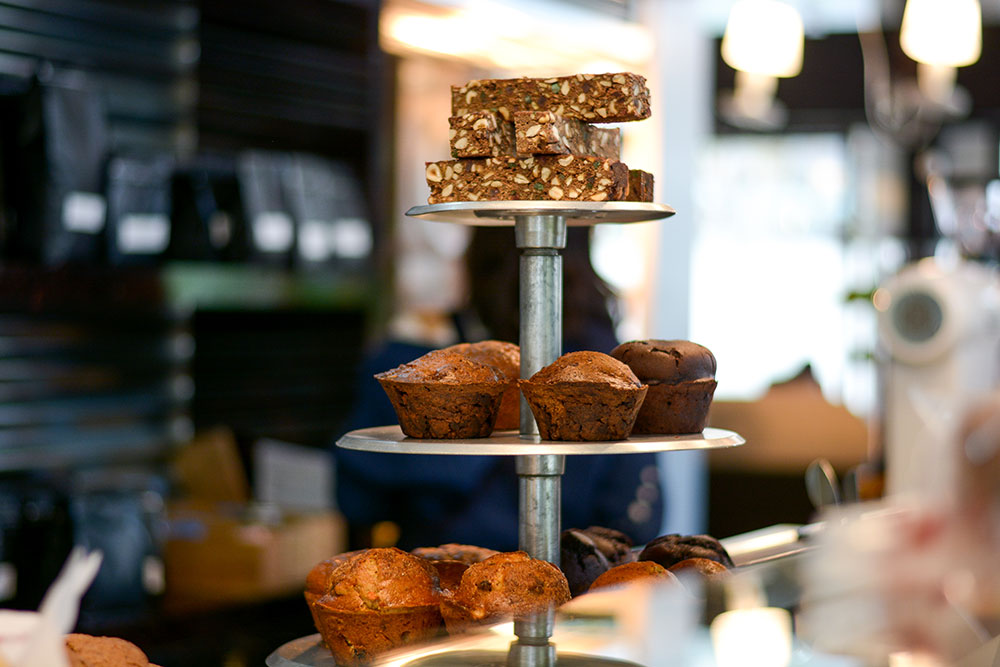
What is one thing that makes your cafe special?
The consistency, the quality and (as we say in Arabic) the “jāw” – the mood, atmosphere, and over all pulse!
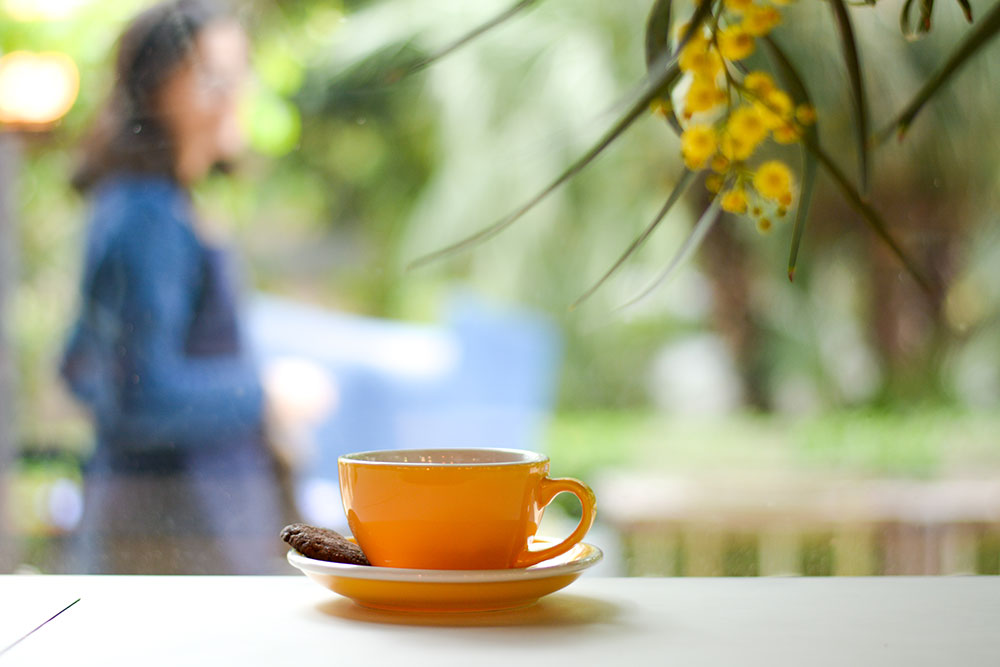
Find them on Instagram.